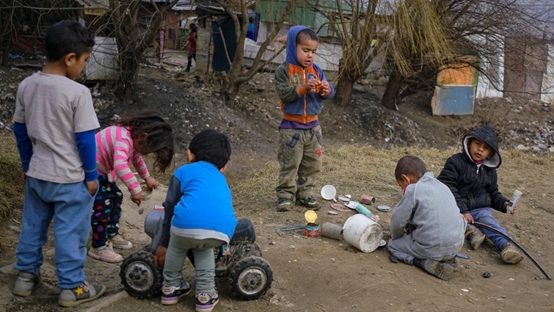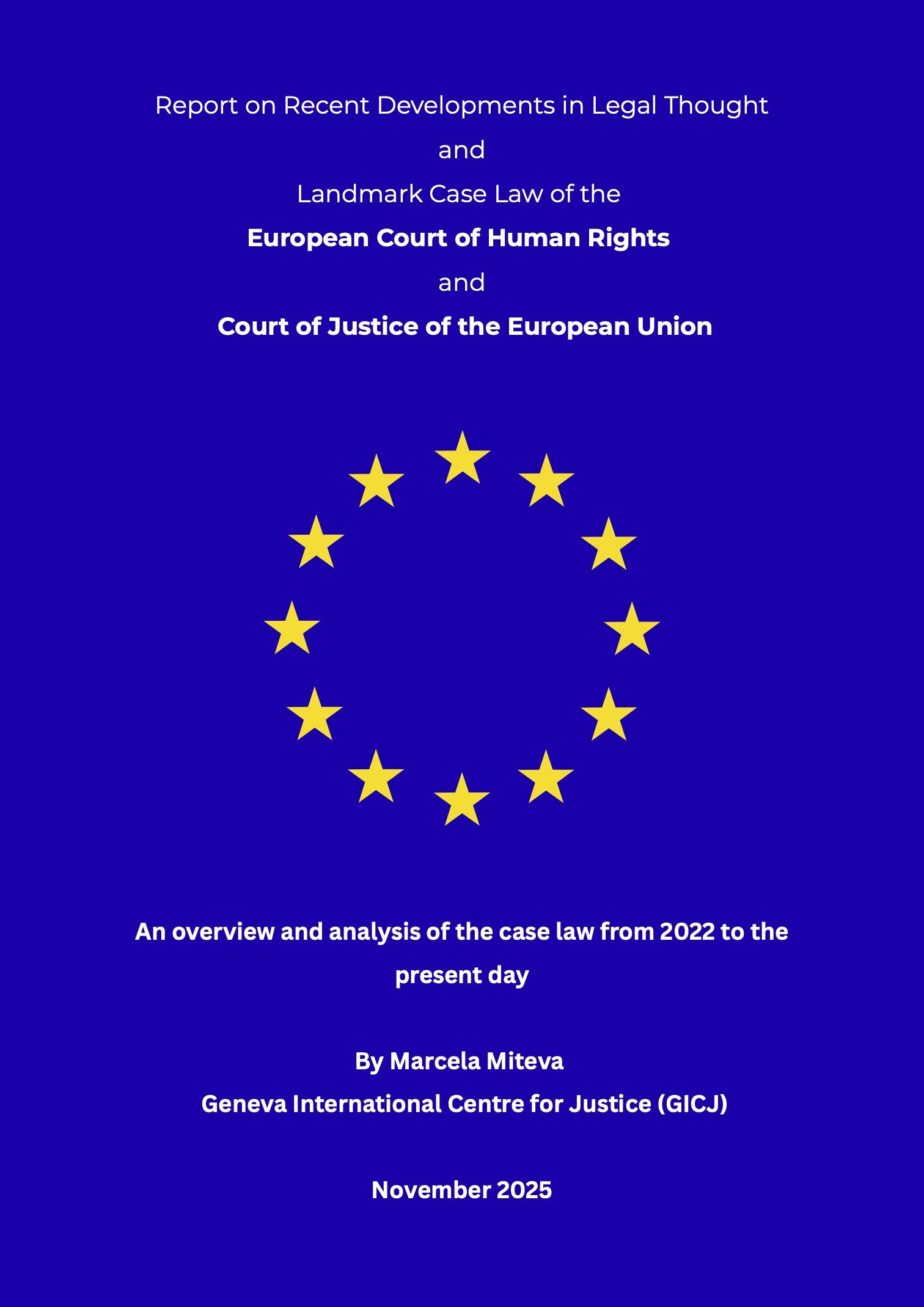21.03.2018
2018 Theme: Promoting tolerance, inclusion, unity and respect for diversity in the context of combating racial discrimination
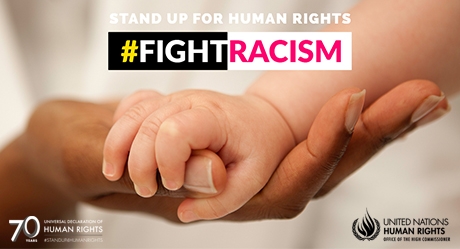
By: Mutua K. Kobia
Introduction
At its Twenty-First Session the United Nations General Assembly resolution 2142 (XXI) proclaimed 21 March as ‘International Day for the Elimination of Racial Discrimination’. The theme for 2018 is: “Promoting tolerance, inclusion, unity and respect for diversity in the context of combating racial discrimination”.
It is important to note that in 2018 racism and racial discrimination persists in multiple forms. Most notably, one has to acknowledge the deplorable infliction of racial intolerance and xenophobia targeting migrants, refugees, people of African Descent, Arabs, and minorities in many regions of the globe. In the past few years racism in the context of migration has been a grievous situation and was the theme of the 2017 International Day for the Elimination of Racial Discrimination. This grave and on-going situation is evident in many parts of Europe, North Africa, United States of America, and Myanmar among several other regions and countries according to numerous reports by non-governmental organisations (NGOs), states, and United Nations (UN) reports and press releases.
It is in this context that promoting tolerance, inclusion, unity and respect for diversity in combatting racial discrimination is especially warranted. Furthermore, Geneva International Centre for Justice (GICJ) continues to stress the importance of adopting and fully implementing the Durban Declaration and Programme of Action (DDPA) as the perspective of combatting racial intolerance via promoting solidarity through various means such as education is well integrated in the DDPA that includes practical steps towards national legislation.
While there are numerous examples of racism and racial discrimination across the globe such as the grave and atrocious abuses against the Rohingya and ethnic minorities in the Middle East, other instances of racial intolerance and racism persist in other regions that are not often mentioned. For instance, police brutality in the United States of America and enslavement in Libya all have racial roots. It is also important to note that in all instances solutions and preventive measures can be found in the promotion of tolerance, inclusivity, unity and respect for diversity, which is also included in the DDPA.
Noteworthy situations that deserve attention
Racism in Libya
The world was shocked on 13 November, 2017 when footage depicting what appeared to be a slave auction surfaced in the media. The practice itself was strongly condemned by a group of UN Experts1 on 30 November, 2017 who also shed light on the current devastating humanitarian situation in Libya. Despite the revolting revelation that black African migrants primarily from West Africa were once again targeted to be enslaved for the purposes of forced labour, detention, torture, bribery, and sexual slavery it is not entirely surprising that it was a possibility in the first place.
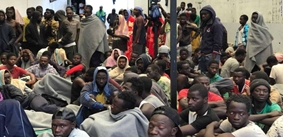 |
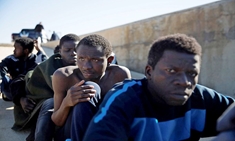 |
It should be noted that the fall and death of Libya’s former Prime Minister, Colonel Muammar Gaddafi, by NATO forces and its allies was a catalyst to the realisation of the slave auction. However, several important factors also contributed to the actualization. The primary and essential element is the intense and none-shameful racial discrimination and racism towards black Africans in Libya that has century old roots.
While the racism and racial discrimination was not as blatant during the 80s and the early 90s it slowly but steadily escalated in the mid-1990s and the 2000s. This is evidenced by the disapproval of the Libyan population regarding Gaddafi’s move to open Libya’s borders to nationals from Sub-Saharan countries in the 1990s. The disapproval by Libyan nationals was expressed through racial discrimination that grew over the years in the 1990s to the point where it drew attention and concern from the Committee on the Elimination of Racial Discrimination (CERD) as they noted in their March 1998 Periodic Report that:
Concern is expressed about allegations of acts of discrimination against migrant workers on the basis of their national or ethnic origin.
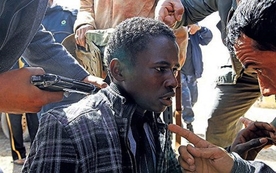 This growing hatred against black African migrants did not cease and sadly further escalated in the 2000s particularly during the anti-Gaddafi uprising when it was reported that Col. Gaddafi had allegedly hired black African mercenaries. Even though these allegations were not confirmed increased racial attacks and racial discrimination against African migrants increased in scale and severity. Reports and footage of killings and even public lynching of African migrants while audiences yelled racial slurs and celebrated surfaced yet there was not much public outcry and condemnation of the perpetrators. Victims would claim their innocence and perpetrators admitted their hatred towards them due to the allegations of black African mercenaries.
This growing hatred against black African migrants did not cease and sadly further escalated in the 2000s particularly during the anti-Gaddafi uprising when it was reported that Col. Gaddafi had allegedly hired black African mercenaries. Even though these allegations were not confirmed increased racial attacks and racial discrimination against African migrants increased in scale and severity. Reports and footage of killings and even public lynching of African migrants while audiences yelled racial slurs and celebrated surfaced yet there was not much public outcry and condemnation of the perpetrators. Victims would claim their innocence and perpetrators admitted their hatred towards them due to the allegations of black African mercenaries.
It is clear that due to past racism, racial hatred and discrimination going unnoticed and unattended to despite the efforts of CERD black African residents and migrants in Libya were used as scapegoats for claims that have yet to be confirmed. Additionally, in November 2017video footage surfaced depicting an alleged slave auction of black African migrants. Since, numerous reports by migrants who were released or escaped enslavement depict atrocious living conditions, various forms of torture usually to obtain ransom, and multiple forms of sexual violence.
Had there been practical steps taken that promoted tolerance, inclusion, unity and respect for diversity in Libya it is almost certain that the situation would not have escalated to the point of indiscriminately killing, torturing, detaining, and enslaving black Africans.
Racism in United States of America
In the United States of America (USA) racism, and in particular hate speech, appears to have resurfaced ever since President Donald J. Trump took office. Discrimination against Muslims and/or Arabs is also evident especially in view of the Travel Ban that President Trump attempted to enforce in February 2017, almost immediately after he took office. Though not as blatant, President Trump himself has been subject to questionable choices of words from his “sh*thole” comments to implicating the laziness of Puerto Rican survivors who asked for help after Hurricane Maria struck Dominica and Puerto Rico. It should be well noted that after said remarks, President Trump hardly seemed remorseful, and furthermore, his supporters are always quick to side and defend his discriminatory actions without self-reflection or consideration of the people Trump refers to.
Additionally, his proposal to build a wall across the border of the US and Mexico as well as the detention and deportation of individuals able to enjoy the Dream Act (2017) appears to be discrimination in nature as it mainly targets immigrants of Latin descent. Along with other legislation that punishes and/or separates families better laws must be enacted that encompasses non-discrimination and respect for diversity.
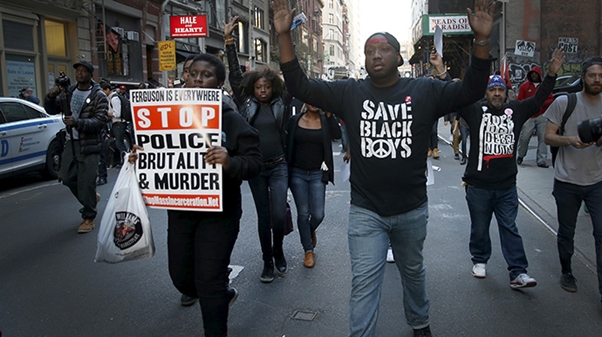
Moreover, Trump has also been accused of siding with White Supremacists after he failed to denounce their role and activities after a clash broke out at one of their rallies in Charlottesville, Virginia. This inaction by the US President can encourage white supremacists and other far-right extremists to continue and even increase their actions and sentiments that are based on racial hatred instead of promoting constructive dialogue and promoting racial diversity.
In 2016, National Football League (NFL) star Colin Kaepernick became the centre of attention when he decided to exercise his right to expression by taking a knee during the national anthem in protest of persistent and repeated ill-treatment of minorities by police officers across the United States. While his peaceful protest was in line with the US Constitution Mr. Kaepernick received considerable backlash for choosing to exercise his right in this manner. It was seen by many opposers as an attack against the American Flag and American Troops. While his actions did spark some dialogue and action in combatting civic and social injustices based on race it came at a high price and Mr. Kaepernick and others who choose to exercise their rights and carry out their peaceful protest are continuously vilified by many who have taken to hurling racial slurs and denouncing the involvement of professional athletes in political and civil debates. It should be noted that while demonization of his actions in mainstream media, social media, and including personal attacks in public Mr. Kaepernick and others have made considerable contributions towards combatting racial intolerance in the US.
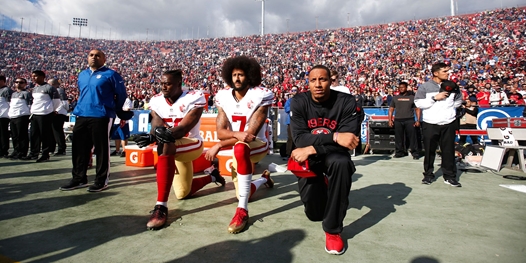
The USA generally prides itself regarding diversity and the protection of human rights but as evidenced in it’s long and recent history the country still has a long way to go in terms of promoting racial unity. Blaming others, pointing the finger, and having “knee-jerk” reactions that normally involve forms of racial hatred and intolerance appear must be replaced with tolerance and unity and the police system must integrated enhanced training that eliminates the perceived element of “fear” particularly regarding people of African and Latin descent.
Racism in Europe
Europe has witnessed increased racial hatred in the form of hate speech and racially motivated violent attacks particularly against African and Arab migrants. Some countries with borders along the Mediterranean encounter numerous migrants from North Africa. Despite several provisions in international law including non-refoulement. However, numerous reports illustrate disturbing acts of violence that can be attributed to racial intolerance and racial hatred as majority of the boats attempting to reach European borders are either shot at, left to sink, or turned away to return to dangerous places and situations where death is a reality.
As well, several countries, especially in Eastern Europe Racial Discrimination against Roma persist as many are unable to find accommodation due to their ethnicity. Furthermore, many Roma children are discriminated against regarding education.
|
Roma children in the slum of Jarovnice, Slovakia [image: Al-Jazeera] |
When promoting ‘inclusion’ the participation of all relevant actors, especially victims, from grass roots levels to decision-making processes and dialogues must take place in order to ensure the voices and contributions of all are welcomed.
Conclusion and GICJ Position
In conclusion, while we celebrate the 70th Anniversary of the Universal Declaration of Human Rights GICJ highlights Article 1 of the Declaration that states:
“all human beings are born free and equal in dignity and rights. And based on Article 2, everyone is entitled to all the rights and freedoms set forth in the Declaration, without distinction of race or any other kind.”
Despite this first article expressed in the milestone document proclaimed by the UN General Assembly in 1948, we still witness various forms of the evil of racism across all regions of the globe 70 years later. It is also very worrying that there remain countless incidents of racial hatred, racial discrimination, and violent acts on targeted individuals or groups based race that go unreported and undocumented due to disempowerment, unawareness, and just as troubling a distrust in legal and other systems in terms of follow-up, accountability, redress, retribution and justice.
Ms. Fatou Diome noted during the “Debate on Racial Discrimination” on the 19th of March, 2018 at the UN Human Rights Council,
“We give people nice words but we treat them horribly”
GICJ continues to stress the importance of and continues to recommend the adoption and full implementation of the DDPA. With regards to all types of media, Africa is still shown as a place where people die, continuous and rampant poverty and disease and malnutrition whereas this is not what Africa is. The media must promote truths about the wonders and beauty of Africa including the positive aspects and actions that several states have taken towards development and innovation. Additionally, creative short and long-term solutions along with quality and accessible education must be applied in all states. Lastly, human rights training at every authoritative level must be implemented urgently and effectively.
The United Nations, states, and civil society must engage in the promotion of racial inclusion, unity, and respect for diversity at all levels towards harmony of the humanity.
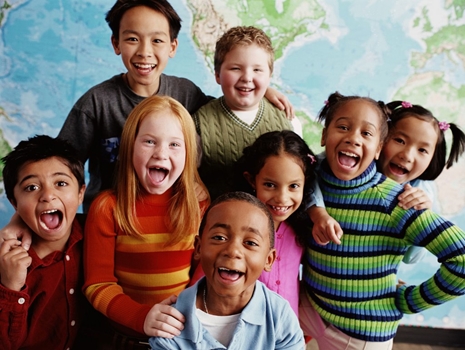
1. The UN experts: Ms. Urmila Bhoola, Special Rapporteur on contemporary forms of slavery, including its causes and consequences; Ms. Anastasia Crickley, Chairperson of the Committee on the Elimination of Racial Discrimination; Mr. Felipe Gonzalez-Morales, Special Rapporteur on the human rights of migrants; Ms. E. Tendayi Achiume, Special Rapporteur on contemporary forms of racism; Ms. Maria Grazia Giammarinaro, Special Rapporteur on trafficking in persons; Ms. Dubravka Šimonović, Special Rapporteur on violence against women; Mr. Obiora C. Okafor, Independent Expert on human rights and international solidarity; Mr. Fernand de Varennes, Special Rapporteur on minority issues; Ms. Maud de Boer-Buquiccio, Special Rapporteur on the sale and sexual exploitation of children; the Working Group of Experts on People of African Descent.
International Days of Remembrance articles by GICJ:
|
|
|
|
|
|
|
|||||
| International Women's Day | International Holocaust Remembrance Day |




